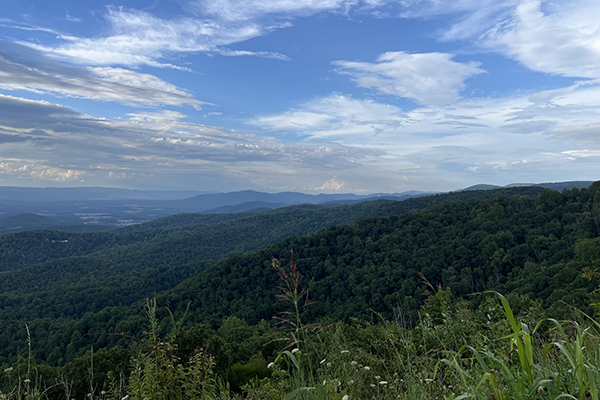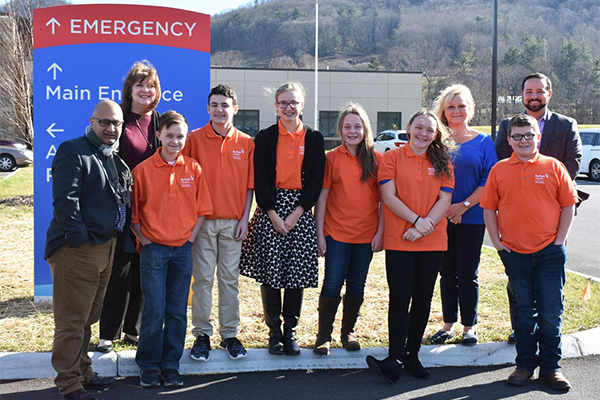
By Kiran Singh Sirah, 2011-13 Rotary Peace Fellow
Hurricane Helene rained sadness and pain for 600 miles across our region with catastrophic impact. In parts of Tennessee, across the mountains in western North Carolina, and beyond, the magnitude of the destruction is devastating. Some have described this as a once-in-a-1,000-year event. A Tennessee civil engineer suggested that the only place anywhere in the world capable of withstanding rainfall like this without serious consequences is the ocean.
An image keeps returning of a place close to my heart. It’s located just a stone’s throw from where my wife and I were married, on the banks of the ancient Nolichucky River, which flows through this region from one of the oldest mountain ranges in the world. It’s a place that holds meaning for many communities – especially for those who live there, who have been displaced from their homes, or are experiencing the loss of loved ones. The image is of Unicoi County Hospital, where just a few days ago, staff and patients had to be rescued from its rooftop.
Some years ago, when the hospital was still in the concept stage, I worked with hospital staff, trained volunteers, and medical teams on a project with a group of teens. It was a unique arts, heritage, and health collaboration that resulted in the hospital receiving a storytelling designation – the only one of its kind in the world.
A core part of this project involved creating a junior board of young folklorists, made up of students from Unicoi Middle School. The Junior Board created a time capsule and learned how to interview community members – from local farmers to food truck owners, teachers, fellow students, their own grandparents, and former hospital staff. They gathered objects and stories, reflecting generations of community life, home, family, place, and belonging.

One member’s father crafted the capsule from local wood, using nuts and bolts from the old CSX train – once a major transporter of Appalachian coal – a detail reflecting the rich history of this place. Inside the capsule, they placed photos, recordings, and transcripts they had collected, reflecting the traditions and heritage of their home place. Some even wrote letters to future hospital staff and young people.
The capsule was placed inside the hospital as part of its launch, to be opened in 25 years (2044) – a decision made by the junior board. Everyone involved received a special key, so that when we come back together, it could be opened as a group. I placed my key on my sacred home mantel shrine.
Whether or not this time capsule is eventually recovered, I believe what these young people created has become a story itself, one that is now part of a much larger narrative – another kind of Appalachian time capsule – connected to the values, traditions, and history of this region. It involves the story unfolding right now, of how people, in crisis, are helping one another by delivering food, checking on neighbors, holding someone suffering in their hearts, making gifts and donations, or praying for those impacted. These are the kind of stories that will live in the hearts and memories of people for generations to come.
All rivers begin as trickles. The water flows and joins larger bodies, combining with other channels to form a greater network. Each of us is like those trickles. We have our own stories, memories, hopes, and dreams, that together, form a larger river – a narrative of who we are, individually and as a culture.
While I’m newer to this place I now call home, what I have learned from living here is that in Appalachia, resilience isn’t just a tool – it’s a value. One that exists in the people and history, passed down through generations, across these mountains.
These rivers are powerful. But so are we.
Kiran Singh Sirah, a Rotary Peace Fellow in 2011-13, is the Creative Lead for Storytelling: A Gift of Hope a project that explores stories as humanity’s birthright to build a socially just present and future world.
Donate to Rotary’s Disaster Response Fund to help Rotary clubs respond to disasters like Hurricanes Helene and Milton.
https://blog.rotary.org/2024/10/11/in-appalachia-resilience-isnt-just-a-tool-its-a-value/
